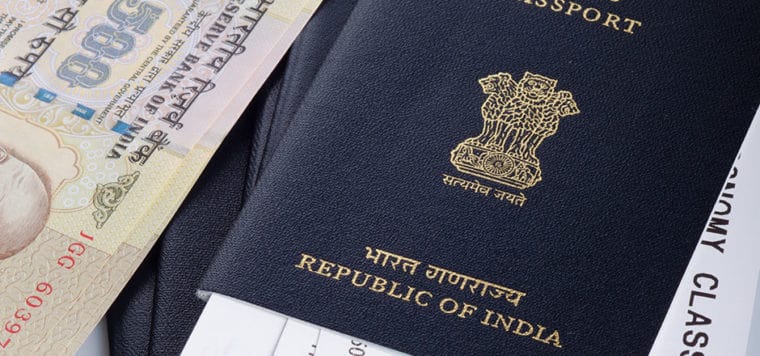How to work with Indian nationals in the UK
Padma Tadi of law firm Irwin Mitchell, reveals how businesses can navigate the ever-changing visa application requirements for Indian employees and clients

Doing business in India often necessitates travel in both directions. As a result, many UK companies find that they need to facilitate UK visas for Indian clients or employees. At the same time falling foul of immigration legislation can attract significant criminal and civil penalties for businesses in the UK.
Working with Indian business visitors for short periods of time
A standard visitor visa allows an Indian national to visit the UK for up to six months and undertake general business activities, including attendance at meetings, conferences, seminars, negotiating and signing deals and contracts.
If regular travel to the UK over a longer period is required, a long-term visit visa that lasts one, two, five or ten years may be more appropriate and allows individuals to stay for a maximum of six months at a time. This can be a more cost effective and quicker option if entering the UK more than four times in any one year period.
If the Indian national is an employee of a company which has a UK subsidiary and they are working on a specific internal project with UK employees, a visitor visa also allows them to advise and consult, troubleshoot, provide internal training and share skills and knowledge.
However, there are restrictions that include not being allowed to complete paid or unpaid work in the UK, living in the UK for long periods (thereby making the UK their home over the course of frequent visits) or receiving payment from a UK source for activities undertaken during their visit (except in limited circumstances). UK SMEs therefore need to exercise caution when working with business visitors from India, who claim to have a right to work in the UK.
If a visitor undertakes any non-permitted activities during their stay, this could lead to their removal from the UK and may have a detrimental impact on any future visa applications. Employers can also face fines of up to £20,000 if found to be employing a worker illegally. It is important that UK SMEs clearly agree with Indian nationals from the outset what they will be doing whilst visiting, and ensure this falls within the activities permitted by the UK Visas and Immigration (UKVI).
Engaging skilled employees from India to work in the UK
This can be achieved through the Tier 2 (General) points-based system. The UK SME needs to be registered as a licensed sponsor by completing an online application. Applications are usually dealt with in less than eight weeks. Once successful, the licence will be valid for four years.
The job title will need to be identified in the Codes of Practice for Skilled Workers which sets out specific minimum salary levels that apply. The UK SME needs to be prepared to pay a salary of at least that amount.
Usually, a resident labour market test (RLMT) must also be carried out by the UK SME in order to demonstrate that there is no suitable settled worker in the UK who can perform the role. This involves the role being advertised in prescribed publications for 28 continuous calendar days. If no suitable workers in the UK are identified, the RLMT will be complete.
If, as a result of the RLMT, a suitable worker is identified who can perform the role, the UK SME cannot proceed to offer the role to an Indian national. This can create difficulties for UK SMEs if they have offered the role to an Indian national and so it is recommended that any offers are made conditional upon the results of an RLMT.
If the licenced sponsor application is successful it can assign certificates of sponsorship using an online Sponsor Management System to the relevant Indian national. Using this certificate of sponsorship reference number, the Indian national can apply for a visa under Tier 2 (General) which will be valid for up to five years, depending on the circumstances.
Licenced sponsors must note that the UKVI may carry out unannounced spot checks so it is vital that UK SMEs have documented their process correctly and have complete employee records. Any failures by the UK SME could result in the sponsor licence being revoked and seriously jeopardise the business’ prospects of being able to sponsor migrant workers.
Other avenues
If businesses based in India have a UK branch, an employee can seek to work in the UK branch through the Tier 2 (Intra-company Transfer) visa. The main advantage of this route over the Tier 2 (General) option is that the UK branch is not required to perform the RLMT.
However, as with Tier 2 (General) visas, the UK branch will need to be registered as a licensed sponsor.
The four types of Intra-company Transfer visas available under this route are for long-term staff who can work in the UK between five and nine years in certain circumstances, short-term staff who can work in the UK for up to 12 months, graduate trainees who can work in the UK for up to 12 months or for however long the graduate training programme lasts (whichever is shorter) and skills transfer who can stay in the UK for up to six months.
At present, the employee must be paid the higher of an appropriate salary as set out in the Codes of Practice for Skilled Workers or at least £41,500 for long term staff and £24,800 for staff in the remaining three categories.
Visa applications involving Indian nationals under the above routes can be completed online up to three months before the date of travel to the UK and a decision is usually received from the UKVI within three weeks. Provided UK SMEs diligently comply with the UKVI’s requirements, the above routes can be extremely effective in obtaining knowledge and talent from Indian nationals which can be particularly valuable for UK SMEs.
Learn more about securing UK work visas for your Indian staff and clients by attending our webinar on 18 May. Register now.








